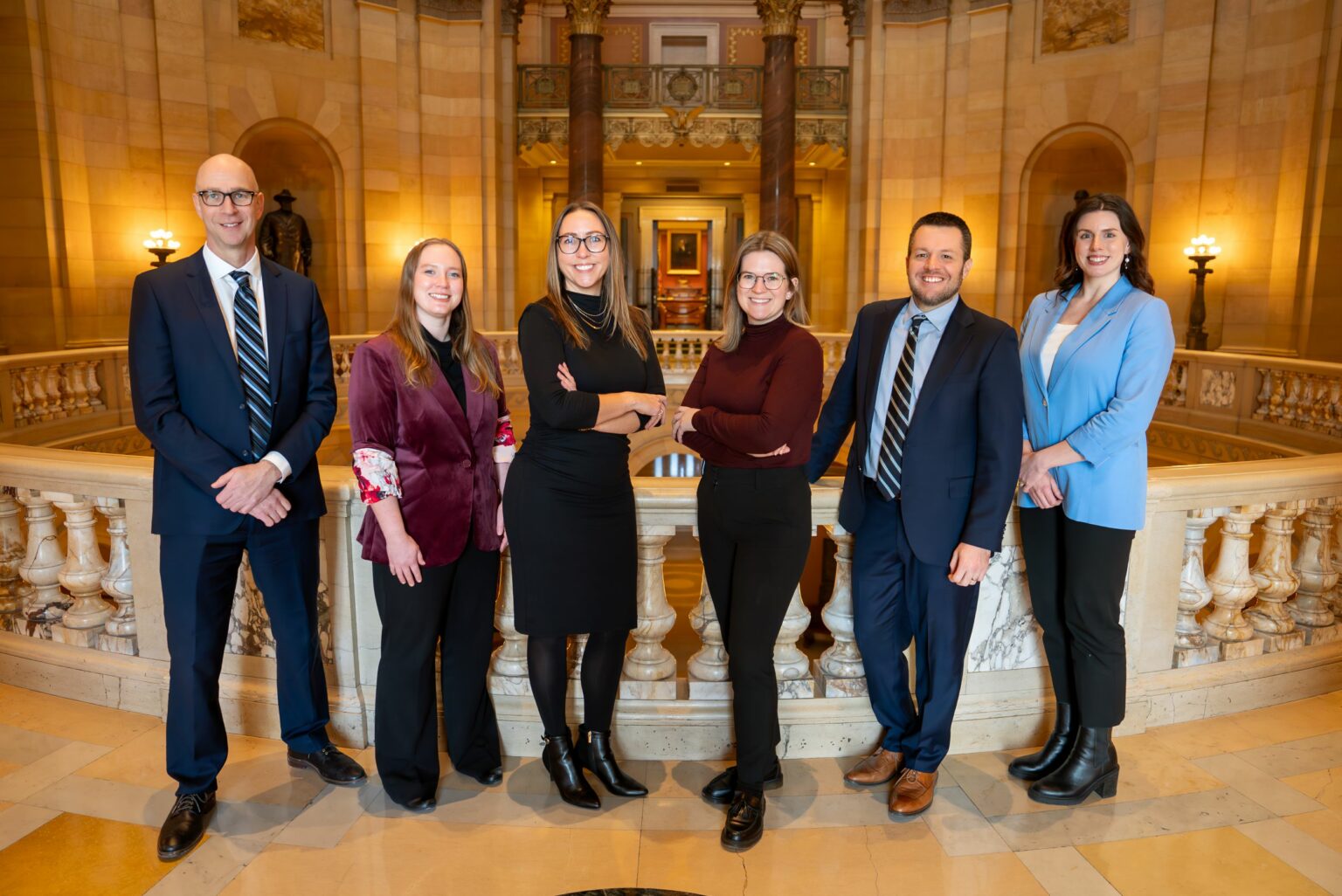Public Affairs Coordinator/Lobbyist

The Minnesota Capitol is already abuzz with activity as we kick off this year’s legislative session. From surplus dollars to seats in the Legislature, we’re breaking down the numbers that matter.
2.4
Billion surplus dollars in the latest economic forecast
November’s economic forecast showed an anticipated $2.4 billion surplus for the state in Fiscal Years 2024-2025. But it wasn’t all good news – higher than expected costs in health and human services and education show a “structural imbalance” in 2026-2027. Essentially, this means that there is future potential for a deficit. Bottom line: Don’t expect much spending this session. There may be some one-time spending, but committee chairs are already setting expectations for low to no budget targets. Lawmakers will get a better look in early March when the February economic forecast is released.
134
Number of Legislative seats up for election this year
Though 2024 is a big election year nationally, only the Minnesota House is up for election this year. All 134 members will face re-election, retire or lose a primary challenge within their party. So far, 16 House members have announced they will not seek re-election, and a couple more may announce before precinct caucuses in late February.
An election year in the House means we’re likely to see further division between parties and within parties. Expect increased partisanship and lots of campaign messaging as legislators use the session to try to woo voters.
43
Number of legislative days left
Though session is months long (running through May 20), not every day is a legislative day. Legislative days are officially when one of the bodies gavels into a floor session. Each biennium has 120 legislative days in which they can act upon bills on the floor. With last year’s fast pace and need to move bills, the House and Senate burned a lot of legislative days – 77, to be exact. This year, the Legislature will not have the luxury of daily floor sessions to move bills between committees and will have to be more selective about “paper-pushing sessions.”
In practice, this will likely mean coordinated committee schedules and a higher probability of “clone bills” moving through the committee process (exact duplicates of bills that allow them to be heard in multiple committees simultaneously).
5
Weeks until the first deadlines
The Legislature operates on a timeline. The House and Senate leaders set a series of dates by which time committees must have acted favorably (i.e., passed) on a bill for it to stay alive. There are different deadlines for policy bills (that have no cost) and finance bills (anything with a state cost). This year, the first two committee deadlines are both on March 22. This means that the Legislature will have five weeks of heavy committee action to get policy-only bills moving in earnest. The other key date to keep in mind is April 19 – the third (and final) deadline. By this date, committee work on all spending bills must be completed.
Meanwhile, the Governor is expected to release his supplemental budget recommendations in mid-March. Though there is little money for any supplemental budget, it is custom for committees to hear the Governor’s proposal(s). Between the lack of time and required hearings, expect committee agendas to be tightly planned to fit in all the work the chairs would like to do.
1
DFL’s margin in the Senate
In 2023, the Senate DFL held strong with a one-seat margin to pass all the legislation the House sent their way. This year, the caucus will have a similar task, but with more complications. The Senate DFL has been dealing with some internal turmoil for several months that has seen members publicly fighting. They will also enter the session with a new majority leader – Sen. Erin Murphy (DFL-Saint Paul) – who recently won a leadership election after Sen. Kari Dziedzic (DFL-Minneapolis) stepped down due to health concerns.
Beyond that, freshman Sen. Kelly Morrison (DFL-Deephaven) is running for Congress, hoping to fill the open seat in the Third District currently held by Congressman Dean Phillips. Her focus may be drawn away from the Legislature as she looks to raise money and win the DFL primary for the seat.
0
Number of issues the Legislature is required to address
As an even-numbered year, the Legislature does not technically have any responsibilities. The biennial budget was passed last year, so the state will be funded through this fiscal year and the next. However, the Legislature will pass bills if there is an appetite.
This year, it seems likely that there will be action on a few topics, including school resource officers, cannabis, fix-its from last session and bonding. Even-numbered years are traditionally bonding years, and the capital investment committees have been at work all interim, touring different potential projects around that state that will be asking for money this year. After last year’s historic $2.6 billion bonding bill, this year’s potential package will likely be much smaller, with House and Senate leadership predicting around an $800 million proposal. To make that a reality, however, both the House and Senate will need to wield Republican votes – a not-so-small task during a divisive election year.
Share with a Friend or Colleague
Contributing Team Members
Public Affairs Coordinator/Lobbyist
